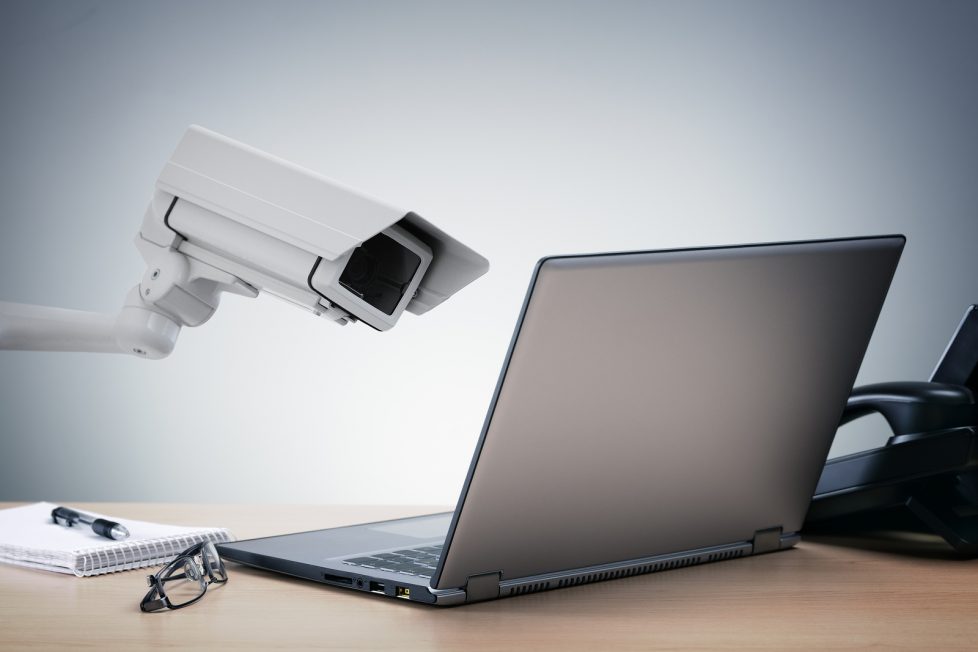They Know Everything About You. But It’s Not Enough

Living under surveillance is a concept that’s been dealt with extensively in many works of fiction. Whether it’s the watchful eye of Big Brother in the dystopian novel “1984”, the surveillance and control of a community of former spies in the 1960’s tv show “The Prisoner”, or even the role-playing game “Paranoia”, where everyone lives underground in a setting that is perpetually watched by The Computer, it’s a concept that strikes a nerve in anyone who values their privacy.
Unfortunately, these days, reality is mirroring fiction. Our world has become an increasingly dangerous place, and surveillance has become a big tool in the ongoing fight against terrorism. But the question becomes, what is too much? After all, it was Benjamin Franklin who said “Those who would give up essential Liberty, to purchase a little temporary Safety, deserve neither Liberty nor Safety.”

Warrantless surveillance as we know it today, according to the article “US Government Expands Big Data Project Collecting Information on Civilians Without Search Warrants”, began in 2005, when President George W. Bush allowed warrantless wiretapping in 2005, with Congress approving it in 2008, but specified that it could only be done against non-American citizens, and not on US soil. The initial program was allowed under the Patriot Act.
The program expanded under President Barack Obama in 2009, and again in 2012, to the point where you had the National Security Agency monitoring online addresses and cyber-signatures in order to locate computer intrusions from foreign countries.
Normally, if the NSA wants to wire-tap an American citizen, they need a warrant from a three-judge court that was established under the Foreign Intelligence Surveillance Act. The creation of the Patriot Act changed that, increasing the breadth and scope of NSA surveillance. Thanks to 9/11, the rules of the game changed. That particular restriction about warrants was lifted.
While no one disputes the need to track down terrorists and defend our data against foreign incursions (things that nations like Russia, China, and North Korea have been tied to), there are downsides to warrantless surveillance.
In the New York Times article “Hunting for Hackers, N.S.A. Secretly Expands Internet Spying at U.S. Border”, the author notes that the government is able to gather significant amounts of information on Americans, things like business dealings, emails, and trade secrets, because Internet monitoring requires copying information as its stolen by a hacker. The problem here becomes clear: if a hacker for some reason is stealing transcripts of some hot conversations you’re having online, and an NSA analyst is catching them in the act, then congratulations, the NSA now has a record of your little chat. It’s not that the NSA wants your dirty little personal secrets per se, but the data is now part of the evidence against the alleged hacker.
And what makes this worse is, the information isn’t just limited to potentially embarrassing things like naughty chats, since not everyone does that sort of thing. This could happen with ANY information that a hacker is trying to steal; financial records, personal correspondence, spending habits, religious or political discussions, anything really.
One of the most frightening aspects of these procedures is the whole idea of what constitutes a terrorist threat. Does it get to the point that, in order to justify any breach of privacy, all the NSA has to do is stand there and point, yelling “Terrorism!”, and it’s all okay to do?
If you’re not chilled by these things, then you’re not paying attention.
Of course, the whole issue of warrantless surveillance came roaring into the public’s perception in the wake of the Edward Snowden incident, where Snowden disclosed the NSA’s data collection activities, and the agency’s capacity to collect data from every phone call and every corner of the Internet, ostensibly in an effort to root out hackers, terrorists, and other criminals.
Snowden’s revelations sent shockwaves throughout the world, since they shed light on the NSA’s spying on many of America’s allies as well as almost three dozen world leaders. The result of this has been a variety of opinions on Snowden himself, and a splash of cold water in the collective faces of the world, waking people up to the reality that privacy is an endangered species these days.
Since falling off the grid is downright impractical, what can be done, if anything? Or maybe something is already being done? Some good news here would be welcome, wouldn’t it?
In the wake of revelations such as Snowden’s actions, there has in fact been some pushback. In June of 2015, Congress passed (and President Obama signed into law) the USA Freedom Act, limiting the government’s domestic surveillance powers.
One bit that the new law specifically targets is Section 215 of the Patriot Act, which had allowed the NSA to collect phone records en masse, seize business files, and request roving wiretaps (a wiretap that follows the target).
This is a start, but the status of the Patriot Act still remains in flux and up for debate. What is clear, however, is that there needs to be a balance struck between protecting us from terrorism and other incursions, while still preserving the privacy of the individual. No matter how you slice it, it’s going to be a formidable challenge, one whose solutions will inevitably not be enough for any of the parties involved.
